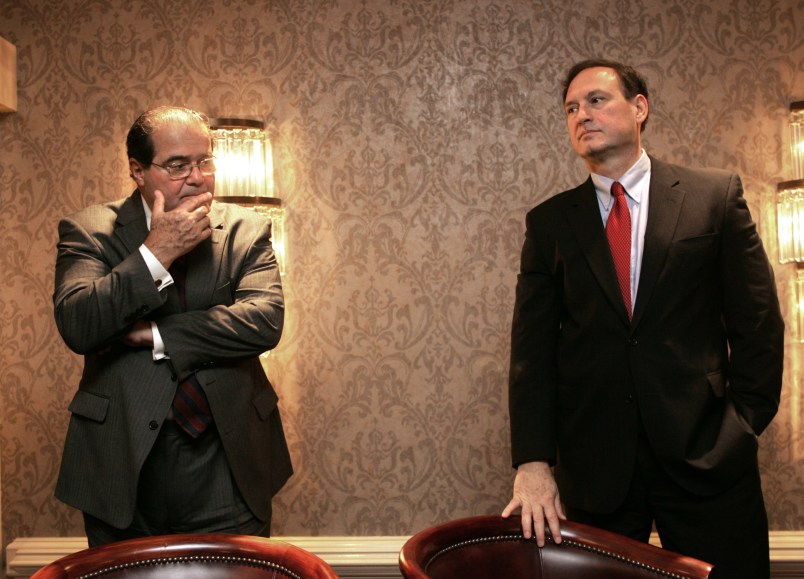A federal judge in Utah has ruled that a member of a fundamentalist offshoot of the Mormon faith may refuse to answer questions in a child labor investigation as a result of the Hobby Lobby ruling on birth control.
The Sept. 11 decision by U.S. District Court Judge David Sam says Vergel Steed, who belongs to the Fundamentalist Church of Jesus Christ of Latter-Day Saints (FLDS), doesn’t have to comply with a federal subpoena because naming church leaders would violate his religious freedom.
As the basis for his conclusion, the judge cited Hobby Lobby decisions by the Supreme Court and 10th Circuit Court of Appeals, which said the Religious Freedom Restoration Act shields people from having to obey laws that substantially burden their religious practices.
“It is not for the Court to ‘inquir[e] into the theological merit of the belief in question’,” Sam wrote, citing Hobby Lobby. “The Court’s ‘only task is to determine whether the claimant’s belief is sincere, and if so, whether the government has applied substantial pressure on the claimant to violate that belief.'”
The judge was referring to the 1993 statute, which says laws that violate religious liberty be narrowly tailored to meet a compelling governmental interest. The Supreme Court interpreted that law broadly by a 5-4 majority in Hobby Lobby when it said owners of closely held corporations may opt out of a law requiring coverage of contraceptives in their insurance plans.
“[I]t is clear that Mr. Steed has raised the very defenses available under RFRA,” Sam wrote in his ruling, arguing that the government did not use the “least-restrictive means” to get what it wanted. The judge said the government may instead acquire the information it seeks about FLDS and Paragon Contractors, which are implicated in a 2012 incident involving children working in a field, by speaking to others “who contracted to manage the pecan ranch.”
Erwin Chemerinsky, the Dean of UC-Irvine School of Law, said Sam’s decision reveals the pitfalls of Hobby Lobby, calling it “stunning” and contrary to precedent for a judge to use RFRA to let a person get out of testifying.
“I think it is quite predictable that the court’s decision in Hobby Lobby would open the door to such claims of an exemption from laws for religious reasons,” he said. “I fear it is just the start of cases of people claiming religious exemptions from general laws.”
Adam Winkler, a law professor at UCLA, said the ruling shows how “Hobby Lobby threatens to make religious believers a law unto themselves.”
In her written dissent, Justice Ruth Bader Ginsburg warned that the Court, in Hobby Lobby, had “ventured into a minefield.”







And awwaaaaaaaay we go!
We’re living in Mitt Romney’s America in spite of him losing the election.
Ruth Bader Ginsberg’s words get proved true again!
Republicans finally find a way to protect American jobs.
There’s nothing to worry about. The SCOTUS knew exactly what they were doing with Hobby Lobby. Religious exemptions are required…provided they’re for the right religions (ie. Mormons, Jews, Hindus, etc. need not apply).
As to the cognitive dissonance of that position with the separation of church and state?
No comment from the court.